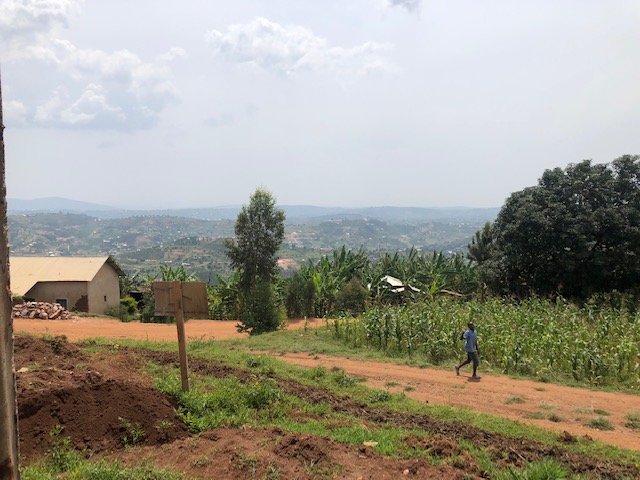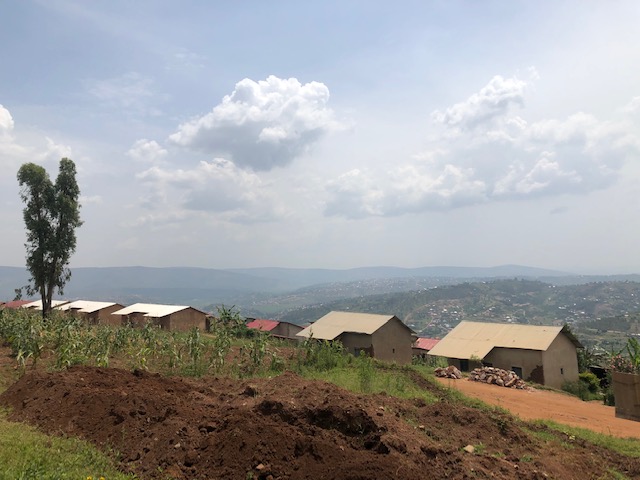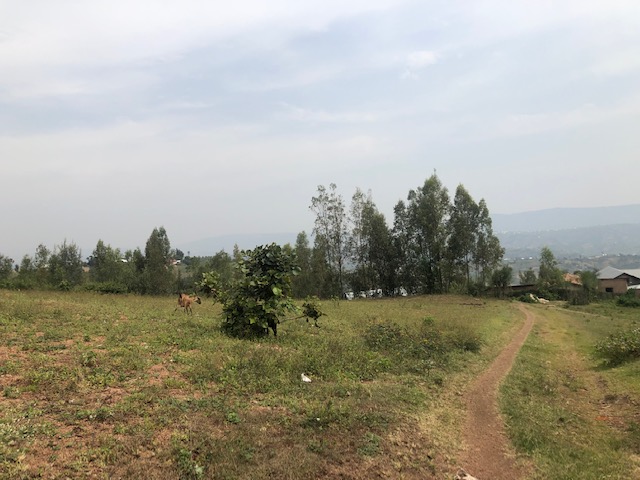Yoou are project section
Introduction to fruit tree cultivation workshop Rwanda
A donation of 5$, 5€ or 5000FRW = 1 fruit tree planted



WHY CREATE FRUIT TREE WORKSHOPS IN RWANDA?
Populations have been turning away from fruits for several years, partly due to their cost and partly due to their taste quality. Indeed, many fruit productions are far from the place of consumption, which leads to early harvesting and alters the taste and nutritional quality of fruits. Moreover, this contributes to increased carbon footprint. The poorest populations lack access to fruits, especially children who suffer from malnutrition as a result.
Malnutrition is present in every country in the world. The United Nations estimates that one in nine people suffers from hunger, and one in three is overweight or obese.
Malnutrition is one of the most serious public health problems globally, especially in developing countries. Malnutrition is a major global challenge, prevalent and apparent during early childhood, but it can also affect older children and adults. Infants and children have higher nutritional needs due to their growth. This situation directly leads to high mortality and severe consequences such as stunted growth and can contribute to mental deficiencies.
In order to combat malnutrition and reduce its impact, the Rwandan government has continued to make efforts to fight against this scourge.
After observing a significant proportion of children under the age of 5 facing nutritional problems in Rwanda, the government implemented a program called "One Cow Per Poor Family" (GIRINKA) in Kinyarwanda, aiming to combat this issue and poverty.
There has been a decrease in the prevalence of stunting among children aged 6 months to 5 years, from 42% in 2012 to 35% in 2018.
A study conducted by the Ministry of Gender and Family Promotion (MIGEPROF) in 2021 on the nutritional status of young children in Rwanda indicates that malnutrition continues to be a major health problem in the country.
Despite the strong commitment of the Rwandan government, social actors, and development partners, the prevalence of malnutrition remains high.
The Rwandan government is doing its best, making significant efforts in agriculture and healthcare to implement various strategies and organizations to reduce this issue, but the road ahead is still long.
In 2019, the Rwandan Ministry of Agriculture (MINAGRI) launched a campaign called "The Fruit Tree Planting Campaign" to promote the planting of fruit trees.
By creating the fruit tree cultivation workshop, the association Les Ateliers Ouverts supports the government's efforts by informing and training the population on tree planting and monitoring, aiming to help eradicate the problem of malnutrition.
This workshop has 4 main objectives:
- Increase fruit production to combat malnutrition and poverty;
- Fight against land erosion;
- Promote permaculture and the management of irrigation using new technologies;
- Promote the art of composting.
An introductory workshop on composting is planned in addition to the introductory workshop on fruit tree cultivation.
This workshop is implemented by the Association Les Ateliers Ouverts and the project beneficiaries.
WORKSHOP PRESENTATION
Prior public consultation sessions will be organized for information purposes. These sessions will serve to inform the population about the distribution and planting of fruit trees and to assess their knowledge of fruit cultivation and consumption. They will also assess the needs and choose fruit trees based on soil composition and climate, as Rwanda has 3 different climatic zones.
To achieve this, the association Les Ateliers Ouverts proposes to inform the population about this workshop and invite them to participate in cleaning and preparing plots for fruit tree planting, as well as their maintenance through socio-family Wednesday evenings (Umugoroba w'ababyeyi) and community work (Umuganda rusange).
These meetings will disseminate information and address issues related to malnutrition. Information sessions will also be organized in schools, health posts, and health centers.
This workshop consists of 4 main stages:
- The first stage involves public consultation for information, followed by training sessions for volunteers.
- The second stage involves fruit tree planting and the management of arboricultural practices by promoting permaculture and responsible irrigation methods. The aim is to train the population in new agricultural methods that are more environmentally friendly. At this stage of the workshop, an initial distribution of fruit tree saplings will be organized so that individuals can plant them at their homes.
- The third stage involves fruit harvesting and distribution. It aims to train the population in proper fruit harvesting methods, enabling them to recognize which fruits are suitable for consumption and which are not.
A training session on different fruit preservation methods (refrigeration, canning, freezing, drying, etc.) will be offered.
- The fourth part concerns the reproduction of fruit trees. The goal is to establish a fruit tree nursery to anticipate losses due to climate fluctuations and assist the most vulnerable populations in planting fruit trees in their gardens.
For populations without access to a garden, solutions such as community gardens and container gardening can be proposed.
Economic Model
A fruit tree sponsorship campaign will be launched online and locally, allowing people to sponsor a tree for 5 euros (5.65 USD). This amount will be used for purchasing the trees, planting them, and providing maintenance. For populations without their own land, the sponsored trees will be planted on a plot made available by the association. The population will be able to maintain the trees and freely harvest the fruits for their consumption.
30% of the harvested fruits will be allocated for sale, which will cover the equipment and necessary supplies for volunteers and contributors. The proceeds from this sale will support the expenses of this workshop. 70% of the fruits will be distributed to the vulnerable populations.
30% of the saplings will be sold to finance the rental or purchase of plots, allowing vulnerable populations without land to plant fruit trees or even start their own businesses. This model is based on business nurseries or community gardens, depending on the country. 70% of the propagated saplings will be distributed free of charge to the vulnerable populations.
Project Implementation
An team will be formed in collaboration with professionals and will consist of:
- A cultivation leader (agricultural engineer) who will be responsible for training the population in various stages of cultivation, from land preparation to harvesting and plant reproduction.
They will also ensure that individuals who have received fruit tree donations maintain and consume the fruits. They will act as a liaison between the project and the relevant authorities.
- A foreman or forewoman who will be responsible for managing the team in the field and reporting to the cultivation leader on encountered issues, progress of the work, etc.
- 4 agricultural workers, both male and female, who will be responsible for land preparation, tree planting, tree maintenance, as well as fruit harvesting, distribution, and sales.
- An environmental consultant.
Evaluation
At each phase of the project, there will be an evaluation regarding:
- The number of participants in the training sessions;
- The number of trees planted;
- The harvest;
- The relationship with the local populations;
- Fruit consumption;
- Tree pests and pest control;
- Personal protection;
- Composting;
- Benefits for the populations;
- Benefits for the environment.
This list is not exhaustive, and other evaluations can be considered. A methodology will be implemented to evaluate the project on a monthly basis and adjust the techniques and workshop needs accordingly. This evaluation will be conducted in collaboration with local communities.
It should be noted that Les Ateliers Ouverts association has signed a protocol with the Rwandan Ministry of Agriculture (MINAGRI). Therefore, the association is required to provide a quarterly report to MINAGRI regarding this workshop.
CONCLUSION
The fruit tree cultivation initiation workshop project will make a difference in the lives of the Rwandan population suffering from malnutrition and aims to address the underlying causes of this problem. It is part of the government's policy.
"When the first cases of COVID-19 made headlines a year and a half ago, few could have imagined the scale the pandemic would reach and the devastating consequences that would follow. What started as a health crisis quickly turned, for many, into a food and livelihood crisis. Millions of people lost their jobs and sources of income. With inadequate or nonexistent social protection systems, the number of people suffering from hunger increased by 161 million in just one year." (Source: Right to Food Report, July 2021)
"In all societies, the pandemic and the measures taken to contain it have disproportionately affected marginalized and disadvantaged groups. In many cases, no precautions were taken, and no exceptions were made to protect the rights of these groups and shield them from the effects of restrictive measures. In most countries, social protection systems proved incapable of safeguarding the most vulnerable and helping them recover." (Source: Right to Food Report, July 2021)
"Children living in poverty have suffered from the absence of school meals or a decrease in meal quality. In some cases, children have been forced to engage in hazardous work to help their families make ends meet." (Source: Right to Food Report, July 2021)
I participate : with Paypal
 LES ATELIERS OUVERTS
LES ATELIERS OUVERTS